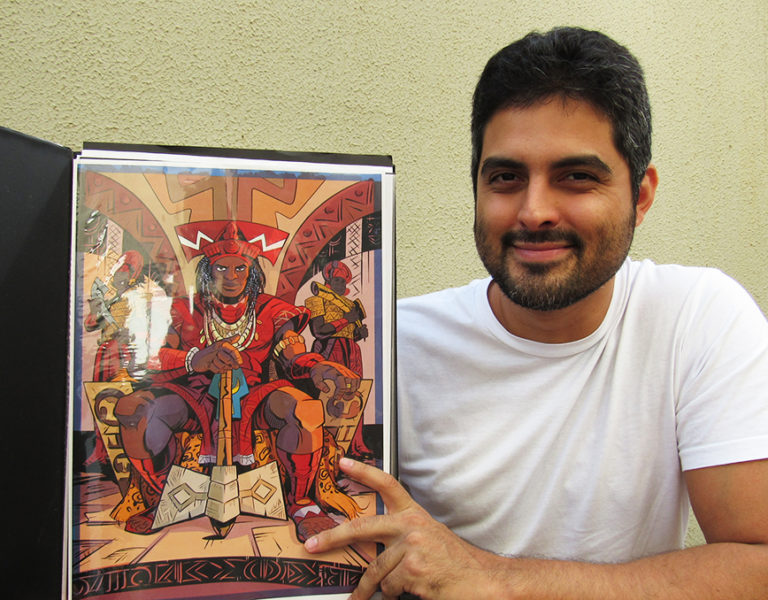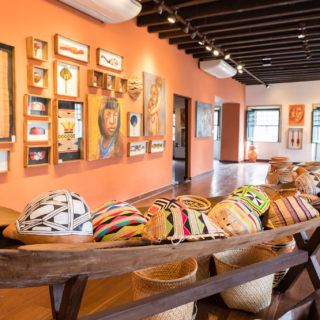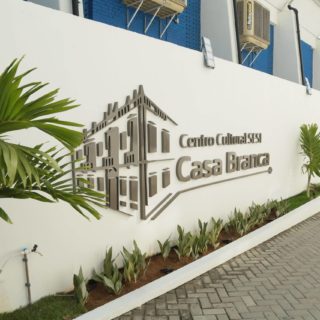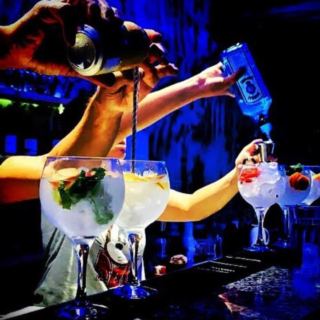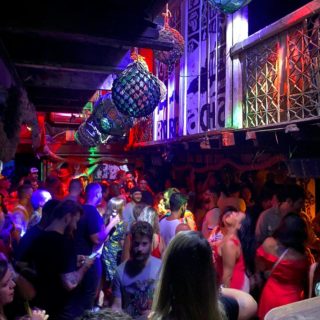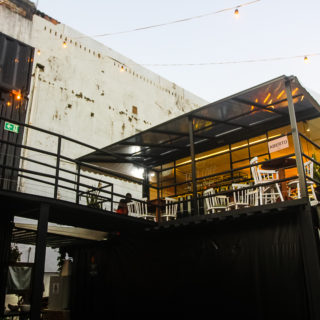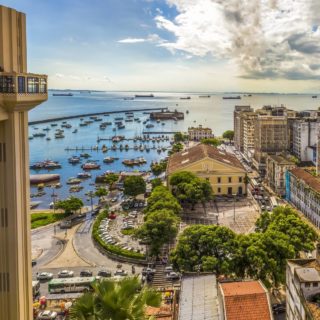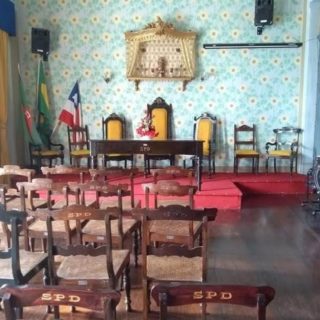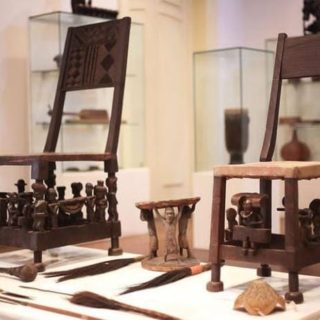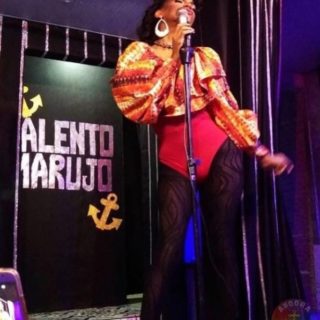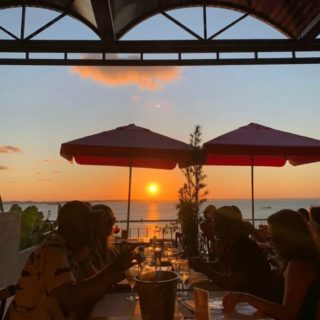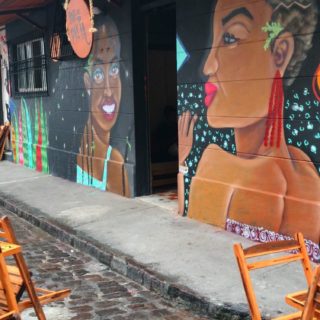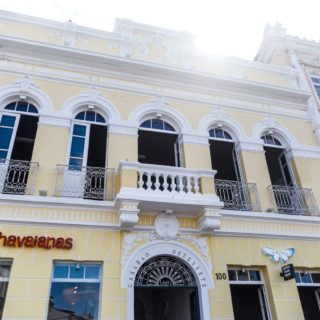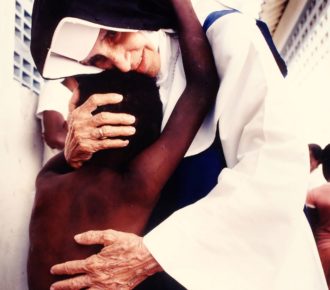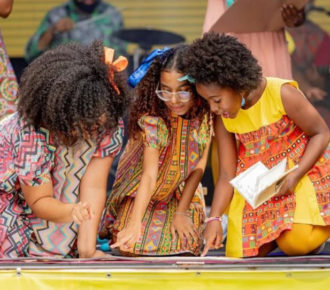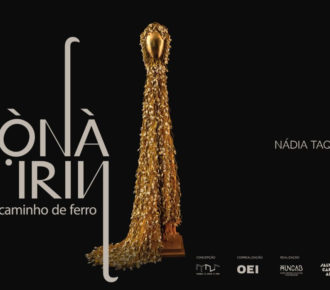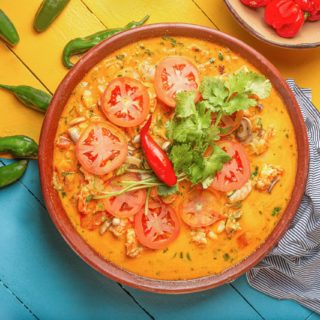
Internet breathes new life into literature
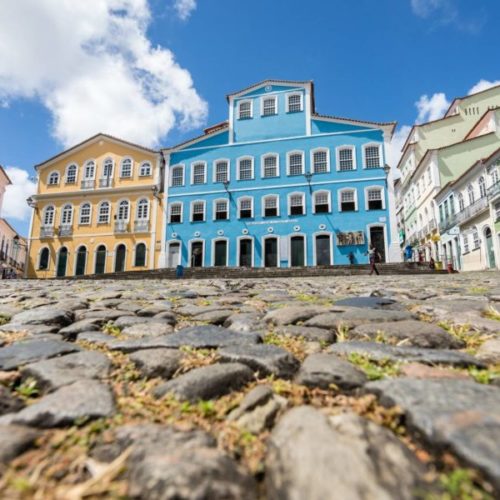
Many Bahian writers stood out and had their works known worldwide. This is the case of the Soteropolitans Jorge Amado (1912-2001) and Gregório de Matos (1636-1696), who wrote true classics of literature.
But anyone who thinks that today’s writers are left behind is wrong. Young Bahians – the majority who started on social media – also appear with their names on the best-selling lists of bookstores and digital stores and show the power of the Bahian literature new generation, which writes from short stories and poetry to essays and fiction.
Literature produced in Bahia is always in a movement process, especially with the advent of the internet, as analyzed by ngela Fraga, director of the Casa de Jorge Amado Foundation and general coordinator of the Pelourinho International Literary Festival (Flipelô).
The strength of internet
The technology of the digital world is transforming the process of literary consumption and, in this process, young writers have had an important relevance. “The youngest writers were born in the world of technology. The older writer still has that romanticism with the physical paper book. I think it depends very much on taste and profile, but younger writers are more virtual. With the pandemic (of the new coronavirus), people had more time to do what they like”, points out ngela, who is part of Flipelô’s curatorship team.
In the process of choosing the writers who participate in the event, which is one of the most important in Brazil’s literary calendar since 2016, the public’s interest in the type of reading is the main point, including listening to the internet demands.
“We always think about what is interesting to people and also about the connection with Jorge Amado’s work. As it is a curatorial team, there are always people who bring the reference of what the younger audience likes. Last year (2019), for example, the best-selling book was by Hugo Canuto, who dialogues with young audiences. We realized that people were also interested in indigenous issues and we also reinforced people’s interest in poetry”, argues Angela.
In a time when social networks present new talents and the digital environment opens space for new writers to release their works totally free and independently, there is no lack of reading options.
See 14 new names you need to know
1. Hugo Canuto
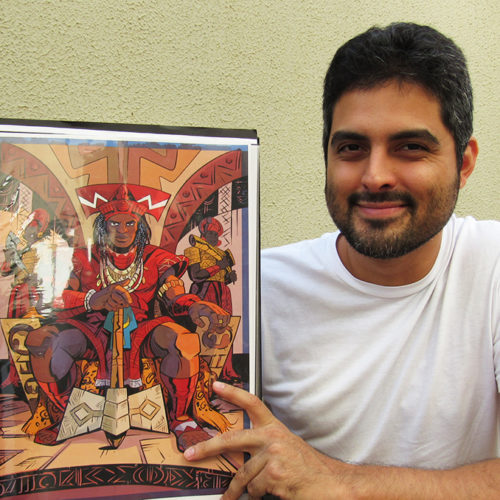
Hugo Canuto was born in 1986 in Salvador and was the best-selling writer of the 2019 edition of Flipelô, giving a new perspective to the production of comic books. In 2015, he launched, independently, at the Belo
Horizonte International Comics Festival, the comic “A Canção de Mayrube – O Início” (The Song of Mayrube – The Beginning), inspired by the mythologies of the Peoples of America. In the following year, he participated in the anthology “Máquina Zero 2” by Quadro a Quadro publisher and had his work honoring Jack Kirby published by Marvel Comics. Instagram: @hugocanuto_art
2. Carla Akotirene
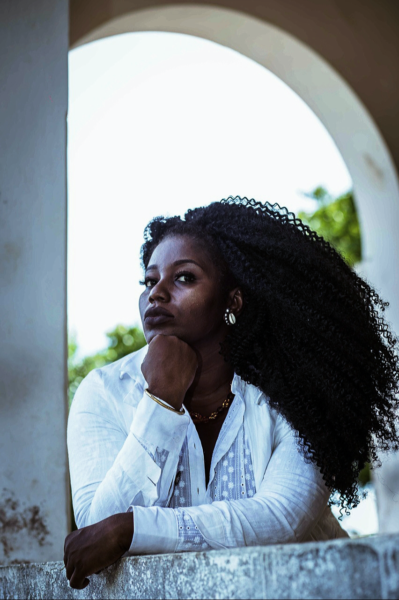
Carla Akotirene was born in Salvador and is one of the main names today to talk about black feminism. Social worker, master and doctoral student in Feminist Studies at the Federal University of Bahia, she has already launched two books that were critical and sales success: “O que é interseccionalidade?” (2018) and “Ó pa í, prezada! Racismo e sexismo institucionais tomando bonde nas penitenciárias femininas” (2020).
In 2018, she was one of the experts invited by UN Women to talk about her vision as a black expert on topics such as violence against black women and racism. She is currently a columnist for Vogue Brasil magazine. Instagram: @carlaakotiren
3. Itamar Vieira Junior
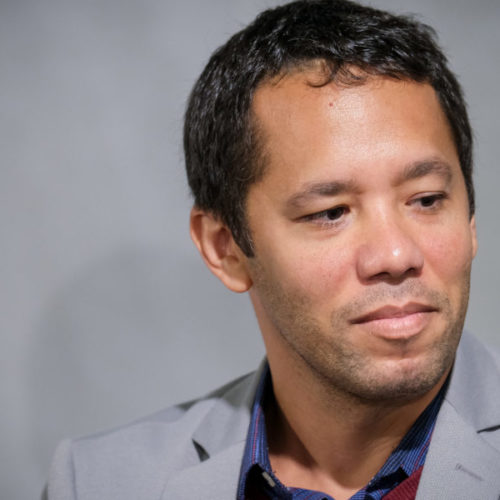
Itamar Vieira Junior was born in Salvador in 1979. He holds a degree in Geography and a PhD in Ethnic and African Studies from the Federal University of Bahia, with a study on the formation of quilombola communities in the interior of the Brazilian Northeast. In 2018, he won the LeYa Prize, from Portugal, with the novel “Torto Arado”.
The jury, chaired by the poet Manuel Alegre, justified the unanimous award “for the solidity of the construction, the balance of the narrative and the way it addresses the rural universe of Brazil, placing emphasis on female figures, on their freedom and on the violence exercised about the body in a context dominated by patriarchal society. Being a novel that starts from a concrete reality, in which situations of oppression, both social and of men in relation to women, the narrative finds an allegorical plan, without entering a Baroque style, which gains universal contours. The literary quality of writing stands out in which the writer is fully recognized.”
In 2012, he published the short story book “Dias”. In 2017, he published the short story book “A oração do carrasco”, a finalist in the same category of the 60th Jabuti Award. Instagram: @itamarvieirajr
4. Allê Barbosa
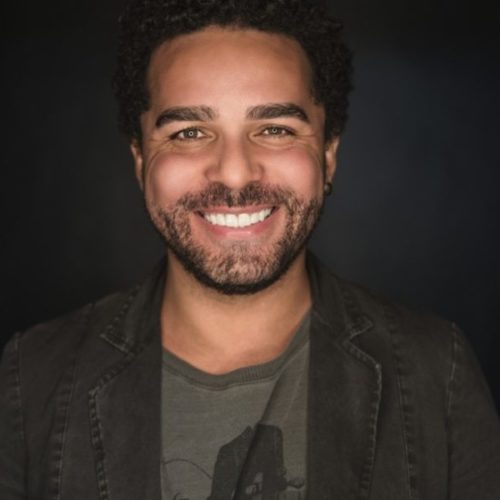
Born in Ipiaú, in the south of Bahia, the music producer, composer and writer Allê Barbosa became known on social networks, where he has more than one million followers – on Instagram alone, there are almost 350 thousand followers. The Bahian author has two books published on the female universe.
Entitled “Quando você for sua, talvez nem queira ser de mais ninguém” and “Apagou contato, excluiu do Facebook, bloqueou no Instagram e deu de cara com ele na fila no pão”, the works are signed by Editora Solislunaum and talk about themes as love, sex, travel, friendship and self-esteem in a good-humored way.
“You are more beautiful than you think, but it doesn’t have to do with your hair or your body. Your body is only a fraction of your beauty and your energy is what counts. So this is what will always keep you alive”, highlights Allê Barbosa. Instagram: @allebarbosza
5. Breno Fernandes
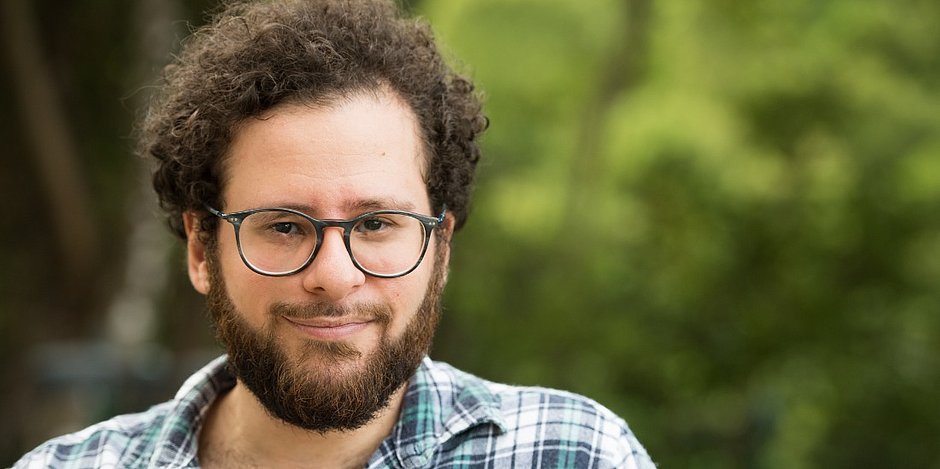
The Bahian writer was born and lives in Salvador, but, as he spent his childhood in Riacho de Santana, in the interior of the state, Breno Fernandes considers himself half Salvador, half Riacho. Graduated in letters and journalism, Breno debuted in children’s fiction in 2002, at the age of 15, when the novel “O mistério da casa da colina” was one of the ones chosen by FTD Educação to inaugurate the Young Writers Collection. In 2006, he published “Mil – a primeira missão”, by the same label.
More than ten years later, in 2017, he wrote “Mendax, o ladrão de histórias”, published by Caramurê. The novel won second place in the National Library Literary Award, in the category of youth literature, and was one of the literary works selected by the Programa Nacional do Livro Didático (National Textbook Program) (PNLD 2018).
In 2018, it was the turn of “Os fanzineiros” (FTD), a youth novel which motto is the explosive mix of bullying and fake news. The work was also selected by the Programa Nacional do Livro Didático (PNLD 2020).
In 2019, Fernandes released his first short stories book: “A Mão do Poeta” (Caramurê) – with ten stories that transform Salvador’s iconic places into scenarios in the magical realism style. Instagram: @ brenofernandes.info
6. Daniel Pasini
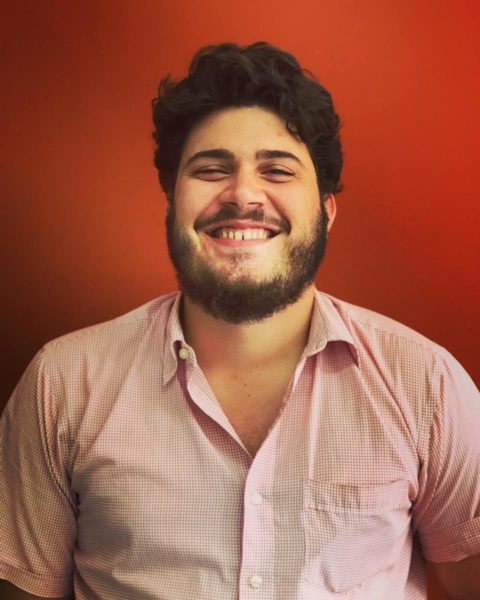
Daniel Pasini is the classic contemporary urban poet. He writes about his temperaments, tastes, frustrations and longings. His writing is marked by places, sensations and people. Despite being born in Niterói, in Rio de Janeiro, he has lived in Salvador since he was six and considers himself Bahian.
Graduated in Information Technology by the Federal Institute of Bahia (Ifba), today Pasini is a graduate student in Business Administration at the Federal University of Bahia (Ufba) and a commercial agent. Meanwhile, he has been writing for some magazines on the Medium platform.
He writes in the electronic magazine “Mormaço”. There, he and Bahian author Maria Luiza Machado, in addition to other names in Bahian literature, publish new texts every day. He is preparing to launch his first book. Instagram: @daniel_pasini
7. Sérgio Faria
Sérgio Faria was born in Salvador in 1987 and defines himself as an “eternal dreamer”. He started writing in September 2012 through the blog (http://solidaobyme.blogspot.com/). In 2013, he started writing his first novel, which was published in 2015. In 2017, he created the website www.sergiofaria.pt and the new blog “sensibilidade na alma”. In 2020, he is in the process of finalizing his second book. Instagram: @ sasf219
8. Edgard Abbehusen
Born in Muritiba, in the Recôncavo Baiano, Edgard Abbehusen has been passionate about writing since he was a child. His path in literature began when he created a profile on social networks, in 2016, where he published texts, phrases and author chronicles, applauded by a legion of followers.
Less than a year later, he released his first book and won releases in major bookstores in several capitals of Brazil. The success resulted in invitations to lectures at universities, schools, literary fairs, etc. Today, his Instagram profile already has more than one million followers.
Abbehusen launched in 2020 his third book, entitled “Acredite na sua Capacidade de Superar”, by Planeta Livros. The Bahian writer also signs a digital column on Sundays in the newspaper Correio (BA). Instagram: @edgardabbehusen
9. Maria Luíza Maia
Writer, psychologist and poet Maria Luíza Maia, from Feira de Santana, has already published two individual books of poems: “Algumas histórias sobre a falta” (edition by the author and Mondrongo Publisher, 2018) and “Todos os nós” (Penalux Publisher, 2019). In her poems, Maria manages to be angry and light at the same time.
In the first work, it is possible to identify a strong psychoanalytic bias interspersed with the daily themes that mark Maia’s poetics. In the second, a mosaic perspective is observed, interpolating temporalities and spatialities to compose the poetic structure that singularizes the publication.
The author, who now lives in Salvador, articulates activities in the Bahian capital that expand the literary scene in Bahia. One of Luíza’s activities ended up resulting in the collection “Corpo que queima”, which brings together the poetic production of 41 Bahian women and circulates for free on the internet.
Currently, she is also editor of Revista Mormaço. In her personal Instagram profile, Maria, who writes texts and poetry, posts her own varied passages, in addition to literary tips from books made by women, focusing on Bahian writers. Instagram: @marialuizamchd
10. Matheus Peleteiro
Author of six books, the Bahian writer Matheus Peleteiro has already achieved national reach with his works, ranging from fiction to poetry. Law scholar, poet and short story writer, he released his sixth book, “Nossos Corações Brincam de Telefone sem Fio”, in 2019. The work features 51 poems, all with love as a central theme.
He also wrote “Mundo Cão”, Notas de um Megalomaníaco Minimalista”, “Tudo que Arde em minha Garganta sem Voz”, “Pro Inferno com Isso” and “O Ditador Honesto”.
In the networks, where he started his writings using the name “Espirituoso e Trágico”, the author publishes events in which he will be present, in addition to excerpts from his own writings and from other authors he follows, being many of them national and Bahian writers. He is also part of the project “Lugar de poesia é na calçada”, in which young people stick posters with poetry through the streets of Salvador.
Instagram: @_matheuspeleteiro
11. Matheus Rocha
Matheus Rocha was born in Feira de Santana and recently moved to São Paulo. Poet and chronicler, he is the author of four books: “No meio do caminho tinha um amor” (2016), “Muito amor, por favor” (2016), “Pressa de ser feliz” (2018) and “Não me julgue pela capa” (2019).
Since he was a child, he wrote poems and texts that narrated his daily life. He graduated in Social Communication with a degree in Journalism at Faculdade Anísio Teixeira, in his hometown.
In 2012, Matheus gathered his texts on a website called “Neologism”, then migrated to Facebook, then to Instagram and Twitter. With more than 700 thousand followers only on Instagram, Matheus Rocha talks about life topics such as love, friendship, dreams, anxiety and depression. Assiduous on social networks, he talks to readers and posts phrases and excerpts daily. Instagram: @matheusrocha
12. Míria Moraes
With a feminist streak, Bahian writer and poet Míria Moraes writes texts and poetry. The author, who is also a psychologist, created a project in which she receives stories from readers so they can inspire her new writings. In the profile, Míria posts her own excerpts and complete poetry, as well as phrases and quotes from other authors she follows.
Born in the municipality of Monte Santo, Míria has already published two books: “Pai, não grite com a sua filha” – independently in e-book – and “Sem Poemas”, also independently in e-book and print.
On her personal Instagram, she also publishes short texts and phrases of her own, always guiding the discussion of gender and militancy against oppression, especially sexism. Instagram: @miriamoraes__
13. Tatiana Amaral
Best-selling Amazon author Tatiana Amaral has 23 books published. The Bahian writer is successful with her erotic novels. Born and raised in Salvador, Tatiana used to be a volleyball player, soccer player, was a swimmer for four years, actress for five and graduated in administration.
She keeps in touch with readers on social media and republishes photos of them. There, the fiction writer also informs about events and new books, in addition to posting excerpts from the works.
Recently, the Soteropolitan is focusing on audiobooks. The first book in the trilogy ” Função CEO – A descoberta do prazer”, for example, is available in an audiobook through the Storytel platform, in addition to having chapters on Spotify. Instagram: @tatianaamaraloficial
14. Vanessa Brunt
The journalist and writer Vanessa Brunt, from Salvador, is the author of nine books, with five distributed in Brazil and Portugal. “Depois Daquilo”, “Ir Também é Ficar” and “Não Precisa Ser Assim” are some of her titles. The chronicler, short story writer and poet gained prominence on the web mainly for her phrases, which are constantly shared on platforms such as Pinterest and Instagram.
The digital content producer is also a columnist for the newspaper Correio and founder of the “Não Óbvio” website, linked to the iBahia portal. Brunt analyzes metaphors and symbologies of films, series, music and other arts on her blog “Sem Quases”.
Today, the author has a postgraduate degree in Digital Influence from the Pontifical Catholic University of Rio Grande do Sul (PUCRS) and gives lectures and workshops at many events, being invited by universities, large companies and schools to bring her content, as is the case of her Creative Writing and Copywriting class. Instagram: @vanessabrunt
Learn more about Flipelô
Angela Fraga, director of the Casa de Jorge Amado Foundation and general coordinator of the Pelourinho International Literary Festival, says that Flipelô aims to take the public that is interested in literature to Pelourinho. “Flipelô’s idea is to take this audience that likes literature to go to Pelourinho, which is the great setting for Jorge Amado’s work. With the pandemic, we need to rethink, because our idea has always been to gather in Pelourinho. But we realized that people connected with literature in that period. We had writers who launched virtual books during this period, such as Luiz Felipe Pondé, Sergio Faria and Matheus Peleteiro”, says Angela, who reinforces that the fair, in 2020, will take place in virtual form in partnership with the Serviço Social do Comércio (Sesc) .
Renewed audience
Flipelô’s main target is younger women who move the economy of Pelourinho. “The public is quite varied according to the day of the week. Women are the majority. The community that lives in Pelourinho also embraces the event annually and participates in the moments of the lectures and launches. Flipelô reflects on Pelourinho’s trade as well. Traders report that they sell more during the literary fair than in January, which is summer, and in São João. It is a diverse audience. There are a lot of people who go to Flipelô who had never been to Pelourinho and who start to go after knowing the fair”, she says.
Angela also points out that, due to Flipelô, she realizes that the Bahian public consumes the literature produced in Bahia in addition to the books produced nationally. “When we bring names like Conceição Evaristo, Emicida and Djamila Ribeiro, who are nationally known, there is a huge movement, but the Bahian author has an audience that moves Flipelô in a different way”, explains the director of Casa de Jorge Amado Foundation.
She points out that, despite the effervescence of the younger authors, there are many classics that cannot be forgotten and that young people are important to keep the literature alive. “Each has its own space and moment. It is not possible to compare the new authors with Jorge Amado, for example, as each has its moment of production and relevance. Everyone is important.”
8 Bahian publishers for you to know
1. Caramurê
2. Solisluna
3. Corrupio
4. Mondrongo
5. Pinaúna
6. Edufba
7. Humanidades
8. Paralelo 13S
By Jorge Gauthier and Fernanda Slama

